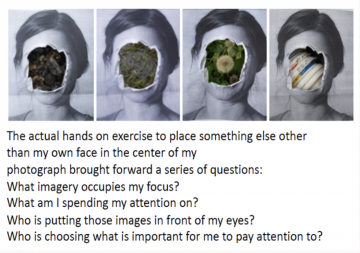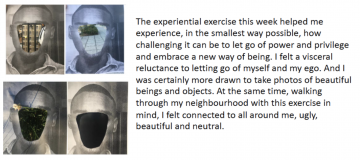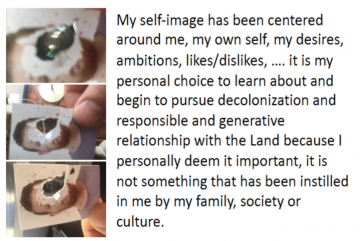Department:
Educational Studies
Project lead:
Dr. Vanessa Andreotti, Dr. Cash Ahenakew, Dr. Sharon Stein
Project Members:
Nakota Hunter, Carolina Duque, Kyra Fay
Reflection:
What led you to your project/inspired your work? What values and principles guided the development of your project?
Our collective had piloted three forest walk exercises in a course about Indigenous epistemologies and curricula in the summer term of 2020 with great success. These exercises centered the land and aimed to connect the concepts discussed in the classroom with the students’ contexts of practice and the wider local and global challenges we face as humanity. Both Indigenous and non-Indigenous students in these courses stated that the exercises helped them engage the intellectual concepts addressed in the course in more embodied and affective ways. The forest walks we are designing address anti-Indigenous racism, anti-oppressive practices, Indigenization, and decolonization. Each activity centers the land and invites deeper engagement with the concepts/teachings from texts by Indigenous authors. Each FWE also contains key questions and an artistic and/or embodied component for students to engage with as they are walking, as well as invitations for reflections about students’ accountabilities in relation to the Calls for Action of the TRC and the UNDRIP.

What have you learned so far?
In piloting the FWEs we have learned that the walks can be effective in helping students to sit with difficult issues, especially issues related to their complicity in social and ecological harm, that would have could been emotionally overwhelming (and therefore deflected) if addressed only in a classroom context. The FWEs create an affective space where the usual cognitive distractions are reduced and where students are invited to create the head and heart space for the uncomfortable process of unlearning that is necessary for the possibility of new forms of relationship to emerge. We also learned that we were too ambitious in our proposal to create 18 walks, since each walk required double the estimated time to be piloted and fine-tuned.

Where do you plan to go? What impact/influence have you or do you see your project making?
The FWEs will be published in a booklet designed by the students who were involved in the development and piloting of the resources. They are also being incorporated in various courses, such as Facing Human Wrongs: Navigating the complexities and paradoxes of global change (blogs.ubc.ca/facinghumanwrongs). We are also seeking funding for expanding the project and creating both audio versions of the walks and walks that are scripted/guided by Indigenous elders for Indigenous students.
